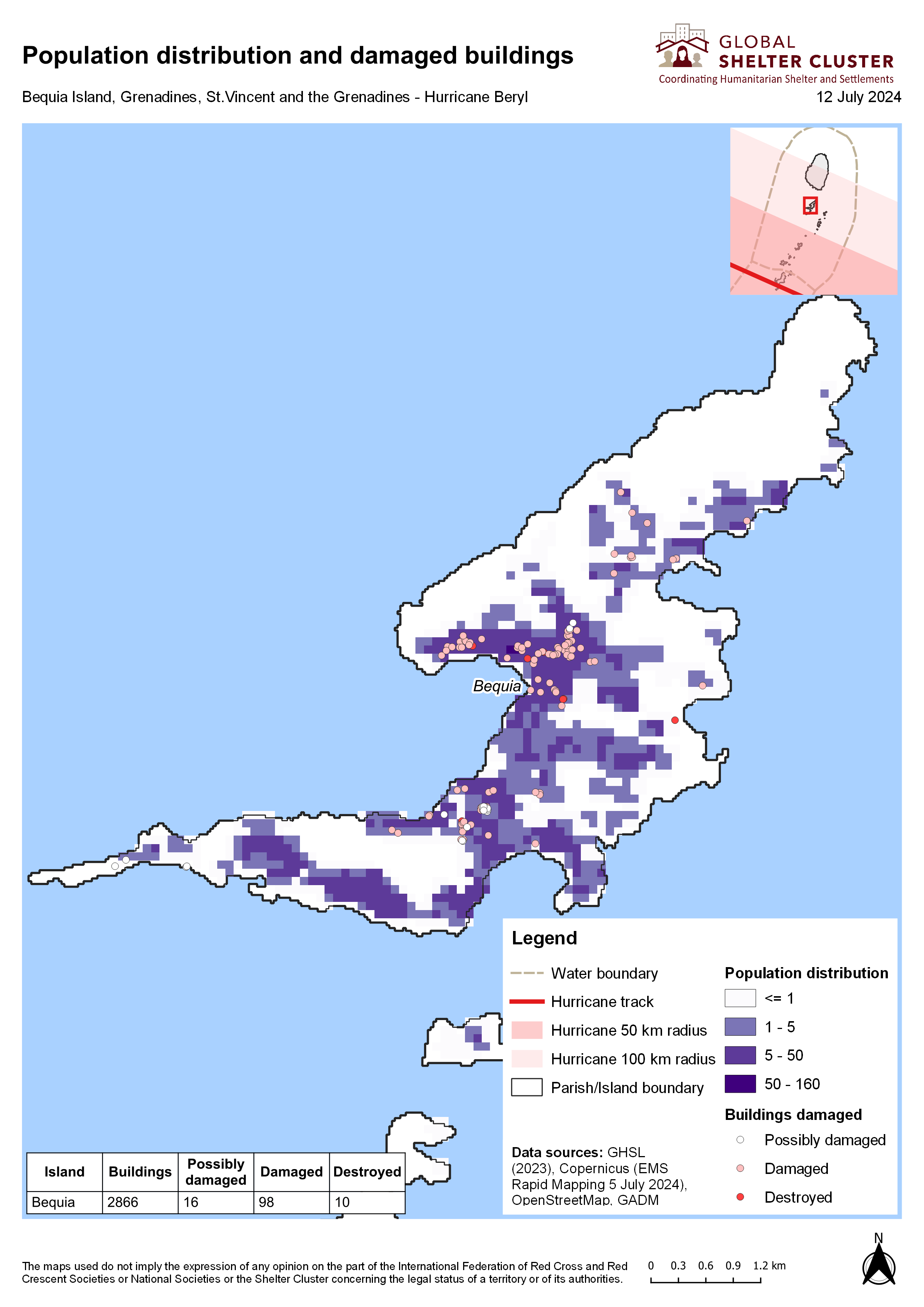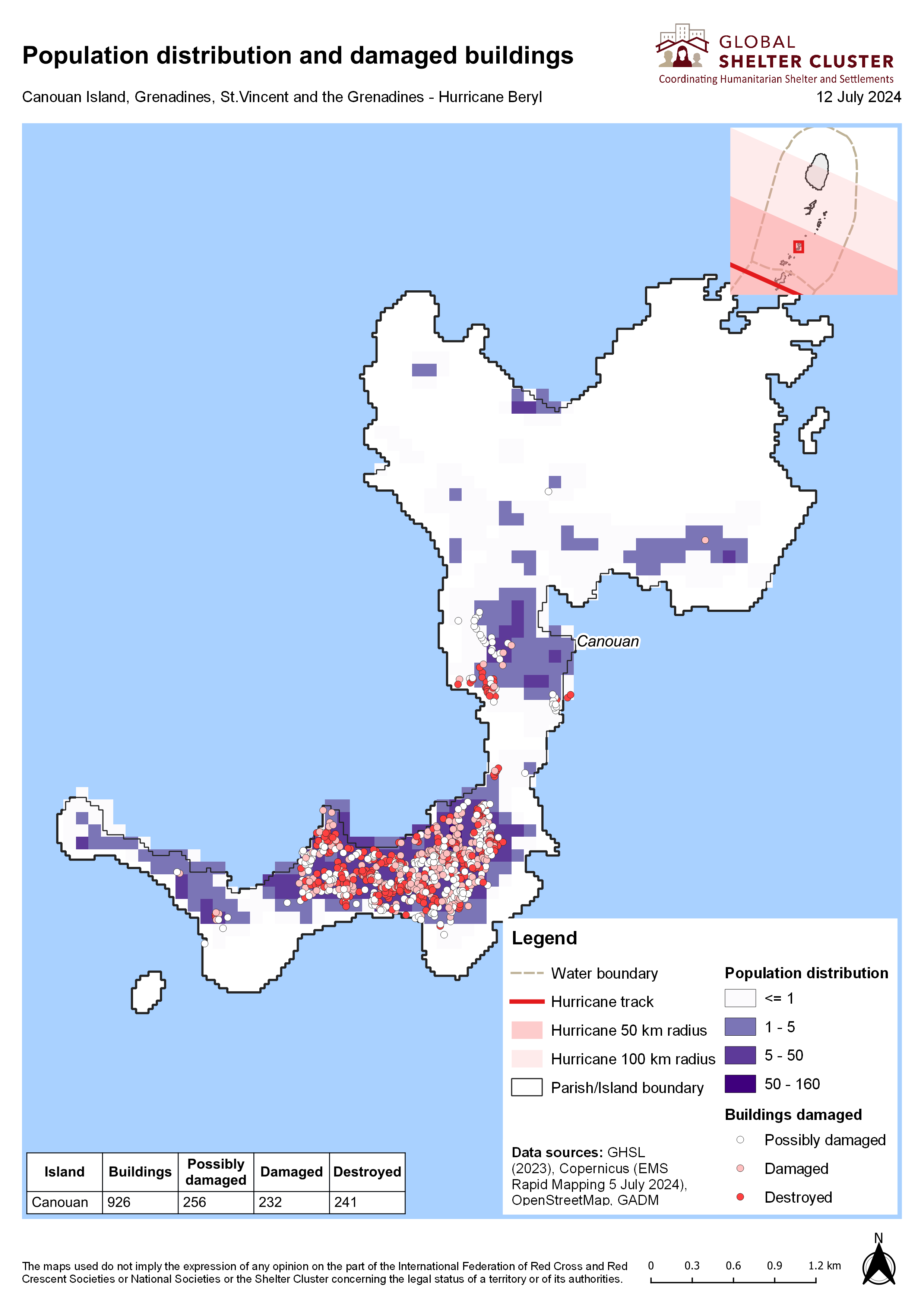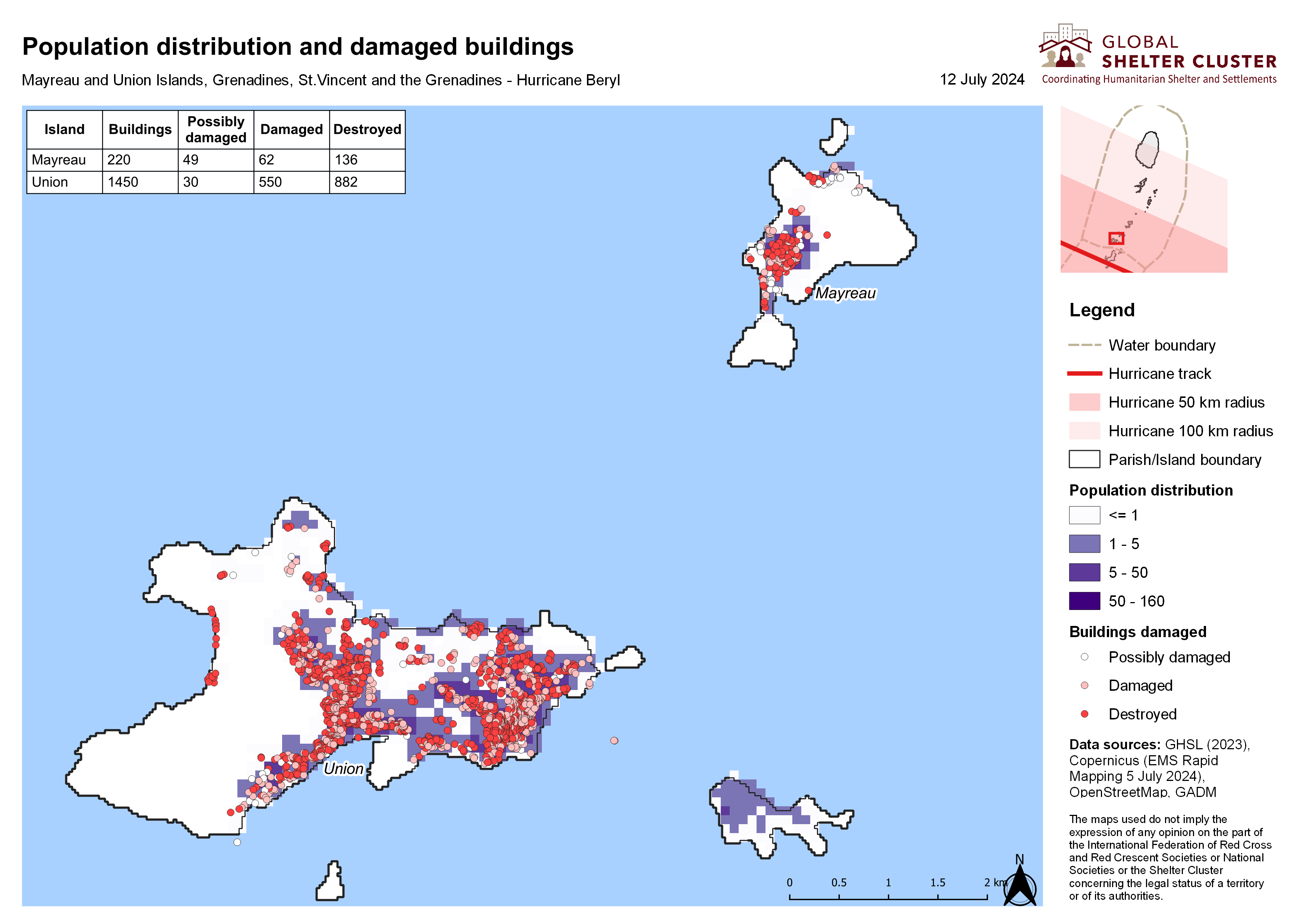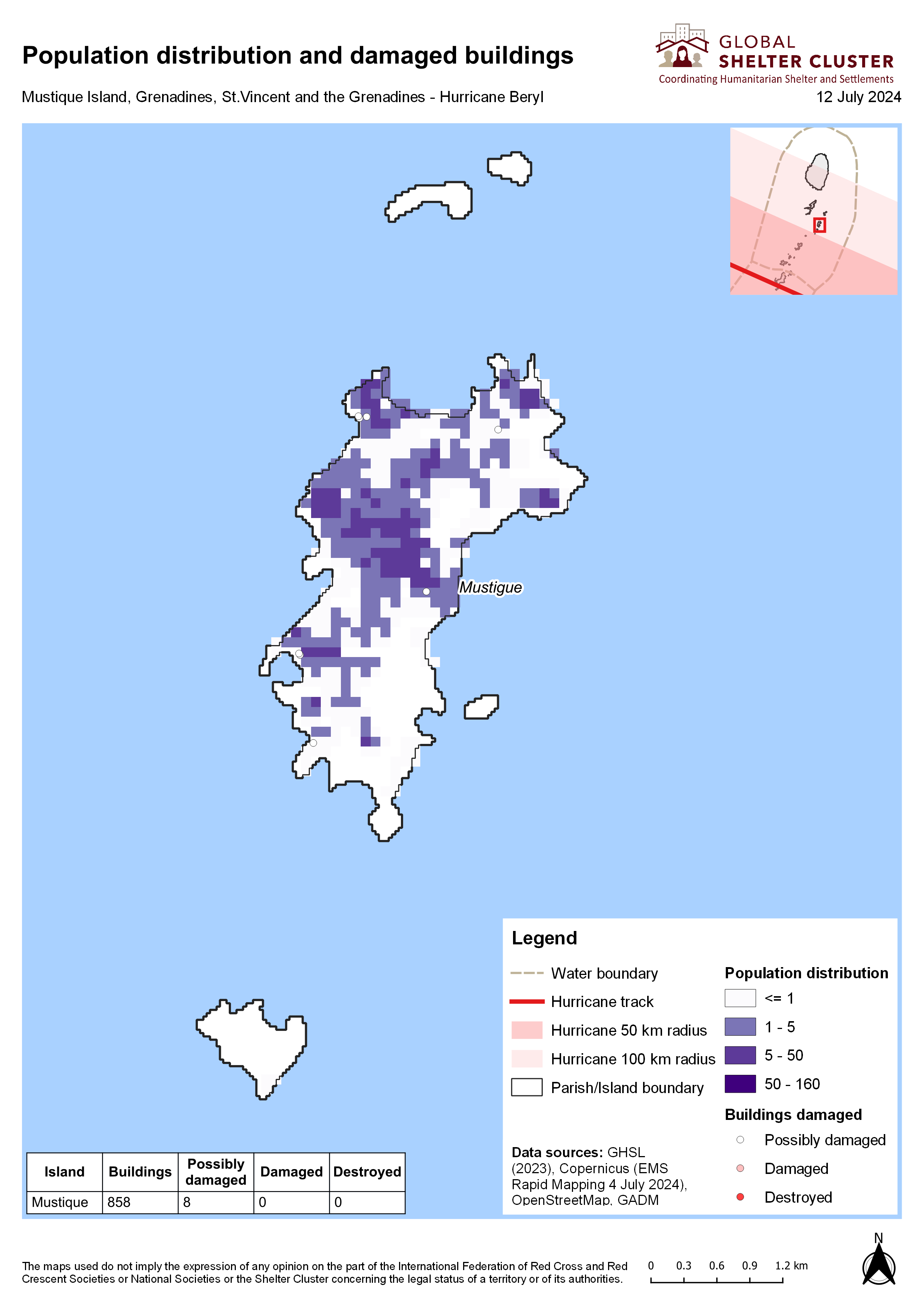Hurricane Beryl 2024 - Regional Response
Featured Documents
{{ title }}
{{ document.field_document_status }}
{{ title }}
Overview
On 29 June, TS Beryl became the first major hurricane of the 2024 Atlantic hurricane season and the earliest Category 4 hurricane to form in recorded history. By 1 July, it became a Category 5 hurricane with maximum sustained winds of 270 km/h. It made landfall on 1 July in Grenada and Saint Vincent and the Grenadines as a Category 4, causing five deaths in Grenada and five deaths in Saint Vincent.
According to the Prime Minister of Saint Vincent and the Grenadines, 90% of the houses on Union Island have been severely damaged or destroyed. Several buildings were also severely affected, including government buildings and several churches. Union Island's critical infrastructure, including schools, hospitals, and the airport terminal, suffered extensive damage, leaving residents without essential services.
In Grenada, more than 1,600 people were reported in collective shelters, and as of July 8 around 383 persons. More than 98 per cent of the buildings have been severely affected in the Union, Carriacou and Petit Martinique islands, where most of the health facilities are compromised, as well as the terminal building Carriacou airport, schools and petrol stations. The northern parishes of St. Patrick, St. David, and St. Andrew on the main island also experienced significant housing and agricultural losses. The National Water and Sewerage Authority (NAWASA) reports only 52% of Grenada's water systems are operational, and communication is disrupted in Carriacou, Petite Martinique, and northern Grenada. There have been reports of severe agricultural destruction, particularly in Carriacou and Petit Martinique.
CDEMA, the Caribbean Disaster Management Agency requested IOM, the International Organization for Migration to convey a Shelter / NFI thematic working group to aid in the coordination of humanitarian response efforts in the Shelter, NFI and CCCM sectors in the Eastern Caribbean. Collaboration with National Coordination structures is ongoing.




